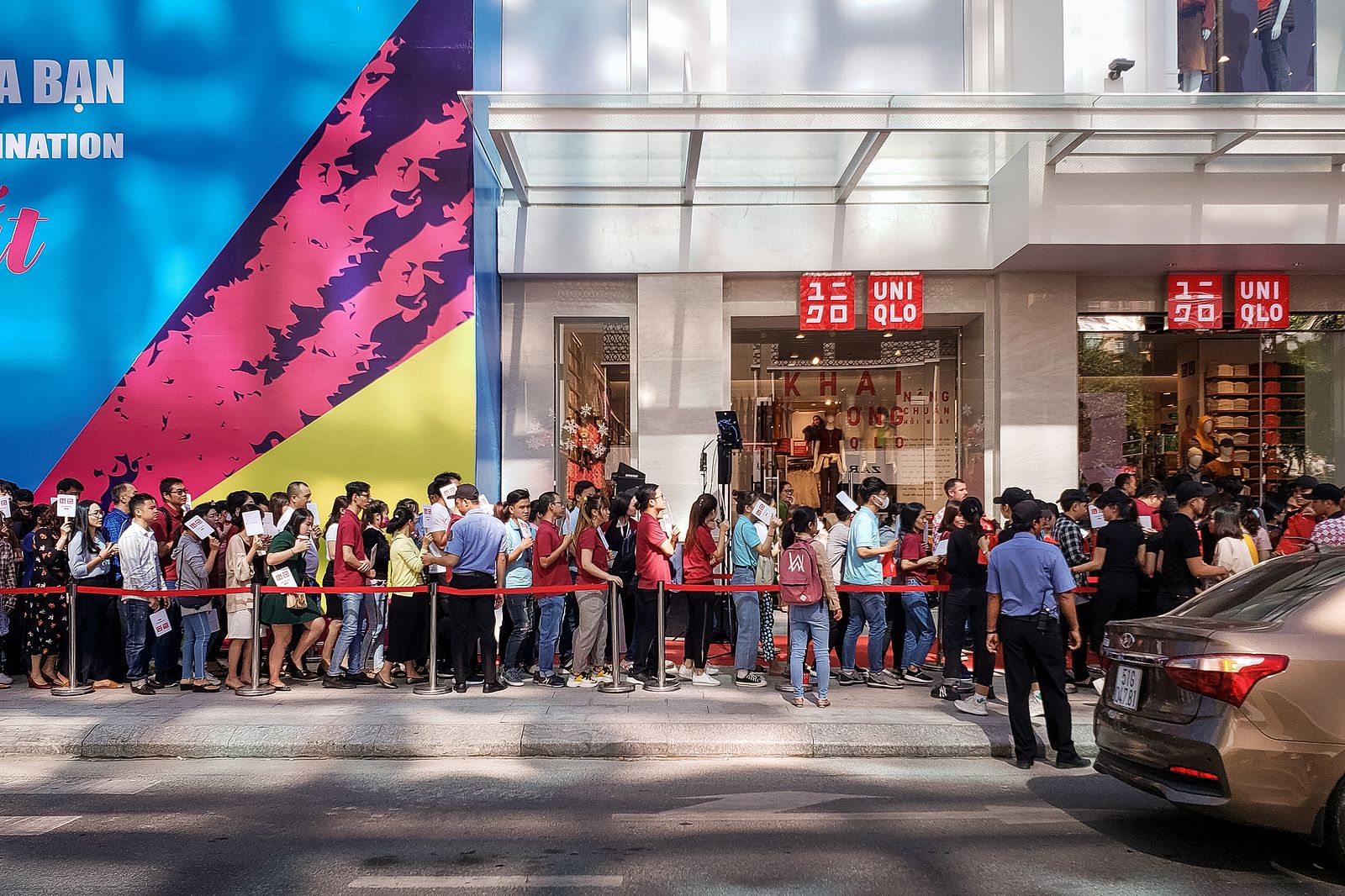After years of anticipation, fashion fans in Vietnam were finally able to set foot in the country’s Uniqlo flagship outlet.
On December 6, Vietnam’s first Uniqlo officially opened its doors in Parkson Dong Khoi. Some customers waited for hours before the opening time and traveled from nearby provinces to check out the store. It’s estimated that more than 2,000 eager shoppers showed up for the launch in Saigon, with queues stretching from the Le Thanh Ton pavement to the park across the street.

Shoppers standing in line were given a queuing number and refreshments.
Uniqlo Dong Khoi has three floors and was designed by notable Vietnamese architect Vo Trong Nghia, who was also present at the launching ceremony on December 5. The first floor houses the company’s new LifeWear collection, while the second floor is dedicated to women’s clothing and the third floor is for men’s and children’s fashion. At 3,107 square meters, the store is currently the second-largest Uniqlo outlet in Southeast Asia, surpassing Singapore’s Uniqlo Orchard Central (2,700 square meters), and sitting only behind Manila’s Uniqlo Makati (4,100 square meters).

CEO Tadashi Yanai speaking at the launch ceremony a day before.
Tadashi Yanai, CEO of Fast Retailing, the brand’s operator, told media during the press event the day before the opening that Vietnam will be one of the company’s key markets in the next decade. Uniqlo currently has 2,000 locations around the globe and is hoping to increase its presence in Southeast Asia four-fold to 800 outlets in the 2020s, Nikkei Asian Review reports.
Yanai also said that he wants the next expansion of Uniqlo in Vietnam to be in Hanoi. Vietnam has been a major supplier of the Japanese brand for years with production partnerships starting as early as 1999. With 50 disclosed suppliers and yearly exports worth US$3 billion in total, Vietnam is Fast Retailing’s second-largest manufacturing hub after China.















